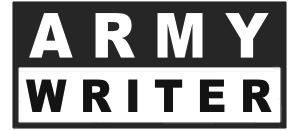Thanks for your contributions!
We need more examples. Examples can be contributed by using the form below.
DA Form 2823, Sworn Statement
The DA Form 2823 is used for a variety of purposes from documenting informal counseling to recording evidence for an investigation. The guidance for filling out the form is in AR 15-6, Procedures for Investigating Officers and Boards of Officers. The section providing instruction for filling out the form is quoted below. Either a chronological narrative or the more formal question and answer format may be used. See the examples at right.
3-8. Witnesses
c. Taking testimony or statements.
(1) If a board is formal, or if the appointing authority has directed a verbatim record (see para 2-2), witnesses'
statements will be elicited by questions and answers. However, narrative testimony may be used.
(2) In informal proceedings, statements of witnesses may be obtained at informal sessions in which they first relate their knowledge and then summarize those statements in writing. A tape recorder may be used to facilitate later
preparation of written statements, but the witness will be informed if one is used. The investigating officer or board
will assist the witness in preparing a written statement to avoid inclusion of irrelevant material or the omission of
important facts and circumstances. However, care must be taken to ensure that the statement is phrased in the words of
the witness. The interviewer must scrupulously avoid coaching the witness or suggesting the existence or nonexistence
of material facts. The witness may be asked to read, correct, and sign the final statement.
(3) Whether the witness swears to the statement is within the discretion of the investigating officer or president. If the statement is to be sworn, use of DA Form 2823 (Sworn Statement) is recommended. If the witness is unavailable or refuses to sign, the person who took the statement will note, over his or her own signature, the reasons the witness has
not signed and will certify that the statement is an accurate summary of what the witness said.
(4) Whether the proceeding is formal or informal, to save time and resources, witnesses may be asked to confirm written sworn or unsworn statements that have first been made exhibits. The witnesses remain subject to questioning on
the substance of such statements.
(5) Although the direct testimony of witnesses is preferable, the investigating officer or board may use any previous statements of a witness as evidence on factual issues, whether or not the following conditions exist:
(a) Proceedings are formal or informal.
(b) Witness is determined to be unavailable.
(c) Witness testifies.
(d) Prior statements were sworn or unsworn.
(e) Prior statements were oral or written.
(f) Prior statements were taken during the course of the investigation.
d. Discussion of evidence.
An investigating officer or board may direct witnesses who are subject to Army authority,
and request other witnesses, not to discuss their statements or testimony with other witnesses or with persons who have no official interest in the proceedings until the investigation is complete. This precaution is appropriate to eliminate possible influence on the testimony of witnesses still to be heard. Witnesses may not be precluded from discussing any relevant matter with the recorder, a respondent, or counsel for a respondent.
e. Privacy Act statements.
(1) When required. A Privacy Act statement (AR 340-21) will be provided to a witness if the report of proceedings will be filed in a system of records from which it can be retrieved by reference to the name or other personal identifier of that witness. Unless otherwise informed by the appointing authority, an investigating officer or board may presume that the report of proceedings will be retrievable by the name of each person designated as a respondent, but that the report will not be retrievable by the name of any other witness. If any question arises as to the need for a Privacy Act statement, the investigating officer or board will consult the legal advisor, if any, or the servicing JA.
(2) Method of providing statement. Appendix B provides guidance for preparing Privacy Act statements. The statement may be written or oral, but it must be provided before taking the witness's testimony or statement. A written statement will be attached to the report of proceedings as an enclosure. An oral statement will be noted in the report either as part of a verbatim transcript or as an enclosure, in the form of a certificate by the officer who provided the Privacy Act statement.
(3) Copy of the statement. Anyone to whom this requirement applies is entitled to a copy of the Privacy Act statement in a form suitable for retention. Providing a respondent a copy of the part of the report of proceedings (see para 5-10) that includes the statement satisfies this requirement. Any other witness who is provided a Privacy Act statement will, on request, be furnished a copy of the statement in a form suitable for retention.


